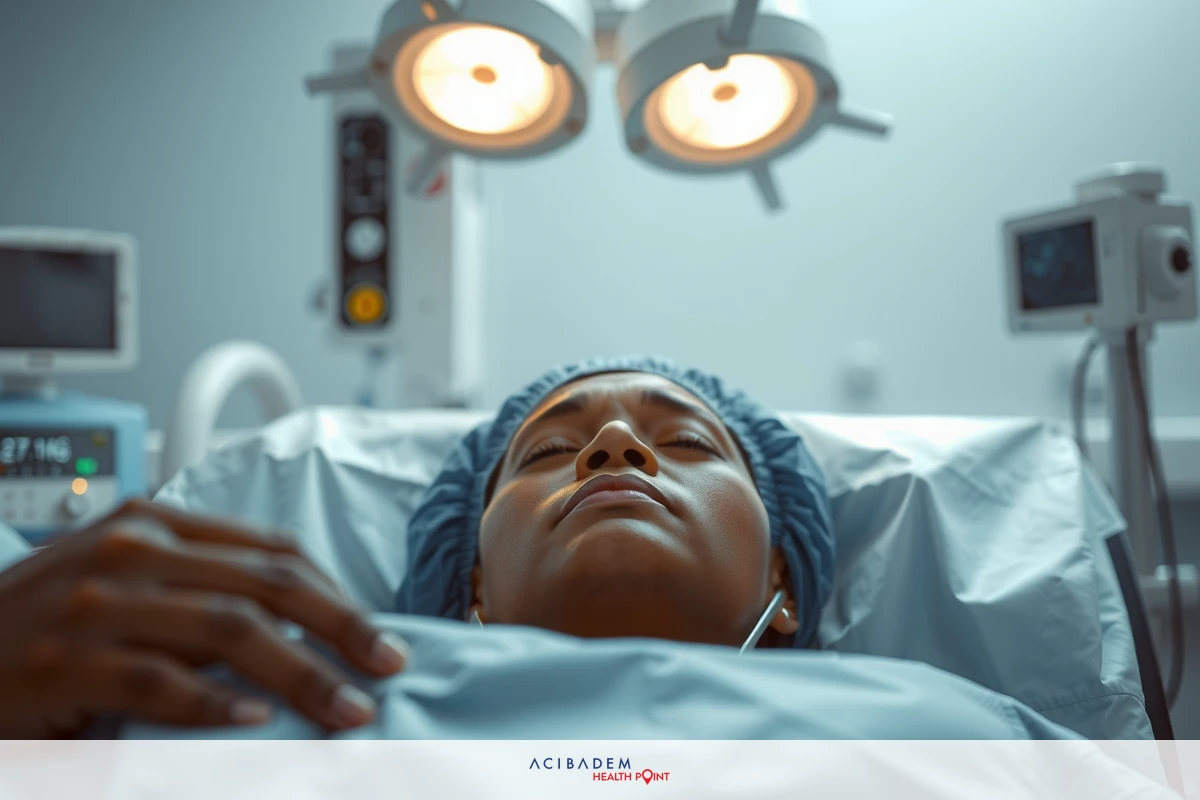Are You Put to Sleep During LASIK Eye Surgery?
Are You Put to Sleep During LASIK Eye Surgery? LASIK eye surgery, a modern solution for vision correction, often brings up questions around anesthesia and sedation. The very notion of eye surgery can stir anxiety in many patients, making it essential to clarify the type of anesthesia involved. Local anesthesia is commonly used during this procedure, ensuring patient comfort while keeping them awake and responsive.
Understanding the benefits of anesthesia plays a crucial role in assuaging fears associated with LASIK eye surgery. Anesthesia helps manage pain effectively, reduces anxiety and promotes relaxation during the procedure – contributing positively towards overall patient experience. Post-operative care also forms an integral part significantly affecting recovery time.
Recovery from LASIK involves specific precautions like using prescribed eye drops and attending follow-up appointments diligently. These steps help ensure proper healing while minimizing potential complications post-surgery.
Types of Anesthesia
In the context of LASIK eye surgery, anesthesia is an indispensable part. The essence lies in choosing the right type to ensure maximum patient comfort while efficiently managing pain. In most cases, local anesthesia is preferred over general sedation because it allows patients to stay conscious and responsive during surgery without experiencing discomfort.
Local anesthesia for LASIK involves using numbing eye drops that help block any sensation of pain on the surface of your eyes. This approach eliminates any sharp or invasive instruments coming into contact with the eye, further reducing anxiety levels among patients. The use of these numbing drops also enables faster recovery post-surgery as they wear off quickly once the procedure is complete.
The use of mild sedation can be considered in certain situations where patients exhibit high levels of anxiety about their upcoming surgery. Sedatives are administered orally or intravenously and serve to soothe nerves by promoting a sense of calmness and relaxation before surgery commences. However, this option requires careful consideration since it involves more extensive preparation and longer recovery compared to local anesthesia alone.
Benefits of Anesthesia
When undergoing LASIK eye surgery, anesthesia plays a fundamental role not only in facilitating the procedure but also in enhancing patient comfort. Its benefits are manifold, ranging from effective pain management to reducing anxiety and fostering relaxation.
One of the primary advantages is efficient pain management. The use of local anesthesia through numbing eye drops ensures that the patients don’t experience any discomfort during their LASIK surgery. This contributes significantly to maintaining patient comfort throughout the process.
Another key benefit lies in its potential for anxiety reduction. For many individuals, undergoing any form of surgical procedure can induce stress or fear. Here’s where anesthesia comes into play – it helps mitigate these feelings and promotes a sense of calmness before and during the operation.
This leads directly to another advantage: promotion of relaxation. When used properly, anesthesia enables patients to stay relaxed during their procedures by eliminating any possible sensations associated with surgical instruments interacting with their eyes.
Finally yet importantly is improved patient comfort overall—a crucial aspect when considering LASIK surgery

outcomes. By mitigating pain and distress signals effectively, anesthesia allows patients to go through their surgeries more comfortably and confidently.
Whether it’s about numbing physical discomfort or calming pre-surgery jitters –anesthesia proves itself as an integral part of successful LASIK eye surgeries beyond doubt.
Recovery and Aftercare
Recovery and aftercare form a crucial part of the LASIK eye surgery process, playing an essential role in ensuring optimal healing while minimizing potential risks. A well-planned aftercare strategy is just as important as the procedure itself when it comes to patient comfort and successful outcomes.
The initial healing time post-LASIK surgery is typically short, with most patients noticing improved vision within 24 hours. However, full recovery can take several weeks to months as the eyes continue to heal and adjust. It’s important during this period for patients to follow their surgeon’s guidelines diligently which might include wearing protective eyewear at night or avoiding certain activities like swimming or vigorous exercises until cleared by their doctor.
One common aspect of LASIK aftercare includes using prescribed eye drops regularly for a specified duration post-surgery. These aid in preventing dryness and inflammation while promoting faster healing. It’s recommended that even if your eyes feel fine soon after surgery, you should not stop using these medications unless advised by your doctor since premature cessation can lead to complications.
Follow-up appointments are also integral components of the recovery phase following LASIK surgery. These allow healthcare professionals to monitor progress closely, confirm proper healing, address any concerns promptly thereby contributing towards overall patient comfort through reassurance about their visual health status.
Observing certain precautions forms part of successful aftercare strategies too – such as protecting your eyes from direct sunlight exposure or refraining from rubbing them excessively during early stages of recovery; these steps help prevent potential harm while facilitating smooth progress towards complete recuperation post-surgery.
In summing up all aspects involved in the ‘Recovery and Aftercare’ section following LASIK eye surgeries – every detail counts! From adhering strictly to medication schedules through attending regular follow-ups till adopting necessary precautionary measures faithfully- each plays its distinct role towards achieving desirable outcomes eventually.
Frequently Asked Questions
What type of anesthesia is used in LASIK eye surgery?
The primary form of anesthesia used in LASIK eye surgery is local, typically administered via numbing eye drops. This ensures the patient remains awake but does not feel any discomfort during the procedure.
Does using anesthesia mean I won't feel anything during my surgery?
Yes, one of the key roles of anesthesia in this context is to block sensations that would cause discomfort or pain. Therefore, while you remain conscious throughout your operation, you should not experience any physical distress due to surgical proceedings.
How long will it take for me to recover after the surgery?
Recovery times can vary from person to person; however, most patients report noticeable improvement within 24 hours post-surgery. Complete healing and adjustment may take a few weeks up to several months. It's important that you follow all aftercare instructions provided by your doctor diligently for optimal recovery.
What precautions do I need to observe post-surgery?
Post-operative care includes using prescribed eye drops regularly and attending scheduled follow-up appointments with your healthcare provider. You'll also be advised against certain activities like swimming or engaging in vigorous physical exercises until cleared by your doctor. Protecting your eyes from direct sunlight exposure and refraining from rubbing them excessively also forms part of these necessary precautions.








